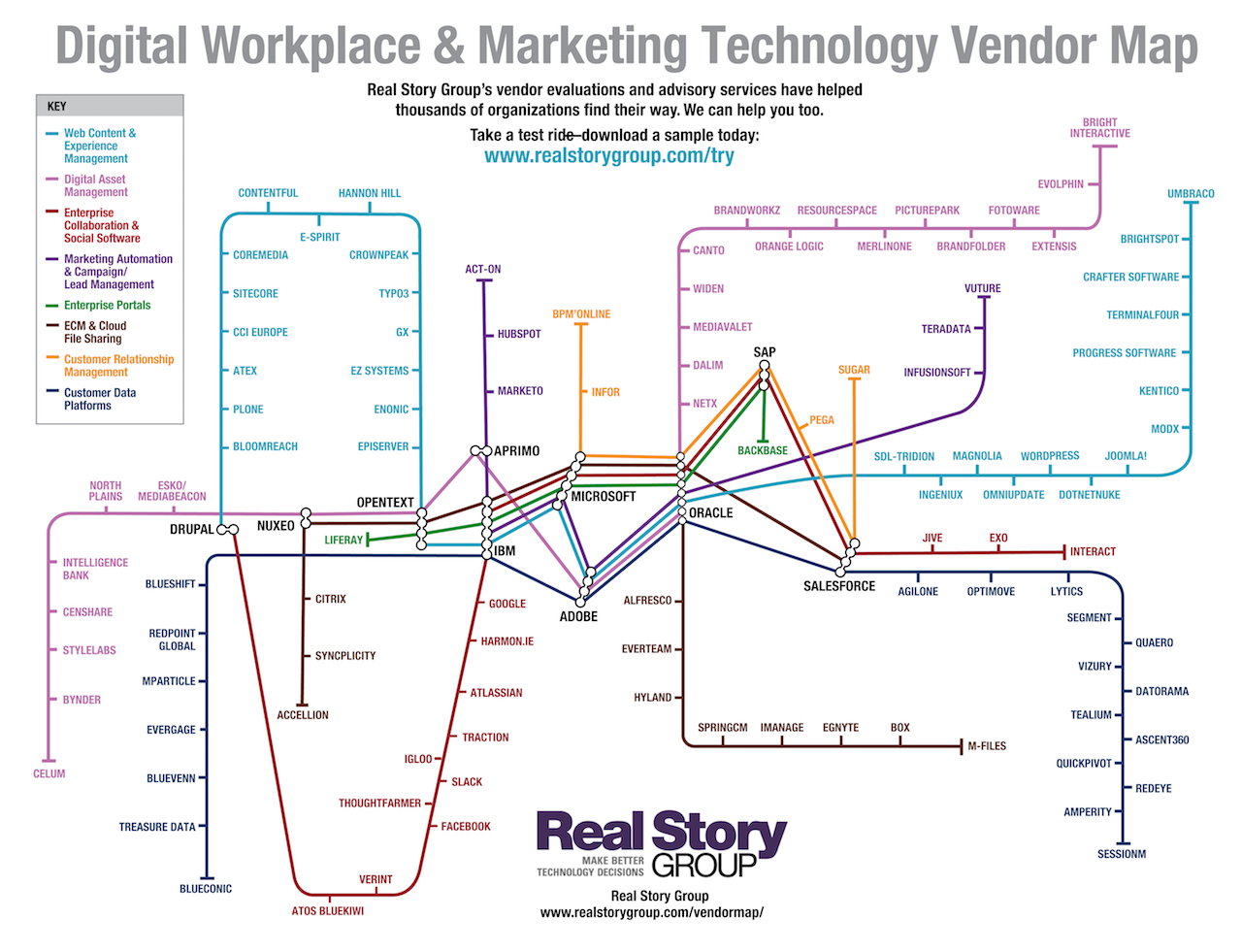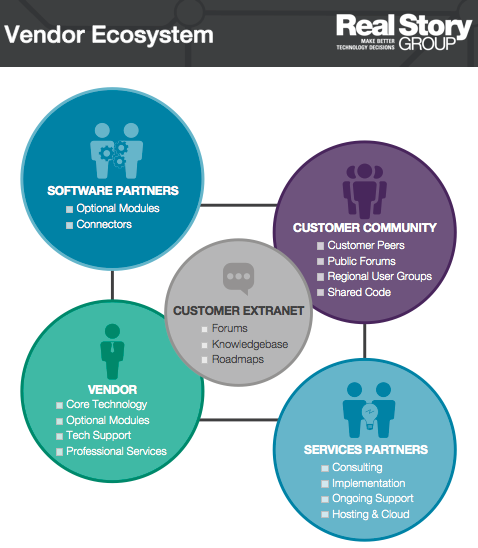When Your Boss Says Cloud-First
We're increasingly hearing about enterprise technology selection teams being given a mandate from above to "go cloud-first" wherever possible, and provide specific justifications when they don't select a cloud-based solution. This is happening in both private and public sectors.
More broadly, there's a growing misconception that cloud is an end in itself, rather than a means to end. That never bodes well.
Where does this confusion of ends and means come from? The ever-astute Michael Krigsman blames charlatan thought-leaders.
Krigsman makes a good point, but traditional software vendors are pushing this hard, too. Leave aside Google and Salesforce for a minute. The biggest enterprise cloud pushers right now? It's the purveyors of traditionally on-premise solutions, such as Microsoft. And they may have more pull with your CIO.
I believe traditional software vendors have followed a very consistent path here:
- Cloud gurus claim the model is transformational in and of itself
- Investors pressure vendor to have "cloud story"
- Vendor spins up (typically non-cloud-based) hosting platform for their offering
- Vendor approaches your CIO and says "save money and make pesky admin tasks our problem"
- CIO instructs underlings to default to cloud model in all new software procurements
- Underlings discover that the cloud offerings -- especially those from traditional vendors -- aren't all they're cracked up to be
It then falls to the underlings to point out to their leadership that...
- Managed hosting is not the same thing as managed services; i.e., you will still have to pay someone (typically an integrator) to customize the platform and deal with messy upgrades
- The cloud TCO over 3- to 5-years is often higher than on-premise, even if the initial CapEx is lower
- The vendor's hosting platform doesn't actually utilize a cloud infrastructure, and therefore often does not deliver better uptime/security/performance metrics than your on-premise system
- The cloud version is functionally crippled, since the vendor won't support certain features at scale
- Migration and hybrid models are terra incognita for all parties, but especially the vendor (see for example, SharePoint)
- The software vendor has never run a service like this before, and it shows
When I say "vendor" above, you can insert Microsoft, Oracle, EMC, IBM, Adobe, XYZ....take your pick.
By the way, I am pro-cloud and pro-outsourcing where it makes sense. For example, you can often make a good case for managed hosting of many enterprise applications -- though this is usually best left to a dedicated hosting provider and not the software vendor. Also many other vendors can offer built-from-the-ground-up-for-cloud (typically SaaS) offerings, rather than frankensteined on-premise clones. But even SaaS-based solutions don't make all those challenges go away.
And most importantly: the delivery model itself is not transformational for you the customer. What you do with the technology is what can transform your business.
Let me know if we can help explain that to your boss...







